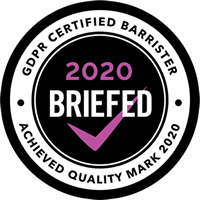
CHARITY COMMISSION’S FIRST PETITION TO WIND UP A CHARITY (RE THRIFT URBAN HOUSING LIMITED)
31st July 2019
Restructuring & Insolvency analysis: The Charity Commission was successful in its petition to wind up a charity under the Insolvency Act 1986 on the ground that it was just and equitable to do so. This was the first time that the Charity Commission has exercised its power under section 113 of the Charities Act 2011 (CA 2011) to present a winding-up petition against a charity where there has been misconduct or mismanagement in its administration or there is a need to protect its property. The court’s approach in deciding the petition reflected the approach taken to public interest winding-up petitions presented by the Secretary of State under section 124A of the Insolvency Act 1986 (IA 1986).
Re Thrift Urban Housing Ltd—Charity Commission for England and Wales v Thrift Urban Housing Ltd [2019] EWHC 1403 (Ch), [2019] All ER (D) 57 (Jul)
What are the practical implications of this case?
Having instituted a statutory inquiry under section 46 of the Charities Act 2011 (CA 2011) and obtained the consent of the Attorney General, the Charity Commission may present a winding-up petition against a charity if it is satisfied that there has been misconduct or mismanagement of the charity’s affairs or a need to protect its property.
Section 113(1) of the Charities Act 2011, provides that a charity may be wound up by the High Court ‘under the Insolvency Act 1986.’ In practice, the ground relied upon is likely to be the just and equitable ground set out in section 122(1)(g) of the Insolvency Act 1986, and the court will have regard to the case law on public interest winding-up petitions brought by the Secretary of State under section 124A of the Insolvency Act 1986. That requires the court to carry out a balancing exercise and weigh the factors which point to the conclusion that it would be just and equitable to wind up the charity against those which militate against this conclusion.
In light of the ‘draconian’ nature of winding-up a company, the court will also have regard to the alternative remedies available to the Charity Commission under the CA 2011. Finally, the court confirmed that, on the final hearing of a just and equitable winding-up petition, it may take a case management decision to permit cross-examination or decide, if appropriate, to determine the petition on a summary basis.
What was the background?
Thrift Urban Housing Limited (the charity) was incorporated and registered as a charity in 1998. It primarily operated a ‘handyman’ service, by which it sought to improve elderly people’s living conditions by carrying out necessary repairs and refurbishment.
The charity’s operations were funded by donations from the public and other charitable institutions, as well as any fees charged for its services.
In 2013, the charity’s chief executive attempted to draw a cheque on the charity’s bank account. That cheque—for £160,000—was made out to him and co-signed by him. The trustees of the charity at the time argued that this was for repayment of a loan made by the chief executive to the charity. The Charity Commission opened a statutory inquiry under CA 2011, s 46.
In the course of its inquiry, the Charity Commission discovered that payments of around £350,000— including £60,000 for a Range Rover—had been paid by the charity to its chief executive for his own benefit (often by cheques which he signed). Moreover:
- there were no minutes for trustee meetings between 2005 and 2014
- the charity’s accounts and cheques bore signatures of a previous trustee who had died and of another who denied signing them, and
- the charity had not kept any day-to-day accounting records
Records at Companies House had not been kept up-to-date and the Charity Commission also considered that the chief executive had, for all intents and purposes, been running the charity with little to no trustee oversight.
What did the court decide?
The charity was represented by its chief executive who, by this stage, had been purportedly made redundant but who had been appointed as a trustee of the charity. The other trustees did not involve themselves in the winding-up petition and the charity had no legal representation. As a result, Insolvency and Companies Court Judge Jones considered that it would help the charity in putting its case to reply to submissions made by the Charity Commission over the course of the two-day hearing.
After hearing from the parties about what issues they wished to put to the other’s witness, the judge also considered that there was no need for cross-examination: a large number of issues were admitted by the charity and the questions proposed by the charity related to the Charity Commission’s conduct of the statutory inquiry and details of complaints it had received from members of the public. However, the inquiry was not the subject of the petition and there was no benefit to be obtained in cross-examining the Charity Commission on matters which had been reported to it.
The judge did not need to deal with every allegation or contention made by the Charity Commission to order the winding-up of the charity. He was satisfied that the chief executive had been the ‘driving force’ behind the charity to which he owed fiduciary responsibilities and that he had also acted as a de facto director. He also found that:
- the terms of the chief executive’s employment and the supposed loan to the charity were unclear and required independent investigation and resolution
- the charity had been unable to produce minutes of its meetings and important decisions had been taken without a quorate meeting of the trustees
- cheques had not been signed in accordance with the charity’s governing documents, and
- the requirements of the Companies Act 2006 relating to the filing of documents and accounts had not been complied with
These findings, the judge found, justified the winding up of the charity, particularly when no undertakings had been given by the charity or its trustees and no alternative course of action had been proposed (such as the appointment of new and independent trustees).
While the judge regretted the loss of a charity, he noted that charities must be run in accordance with the statutory and common law duties owed by them and their trustees and that, in these circumstances, it was just and equitable to wind it up.
Case details
- Court: High Court, Business and Property Courts, Insolvency and Companies Court
- Judge: Insolvency and Companies Court Judge Jones
- Date of judgment: 07/06/2019
Conor McLaughlin was instructed by the Charity Commission and led by Tim Akkouh.
This article was first published by Lexis®PSL on 12 September 2019.



